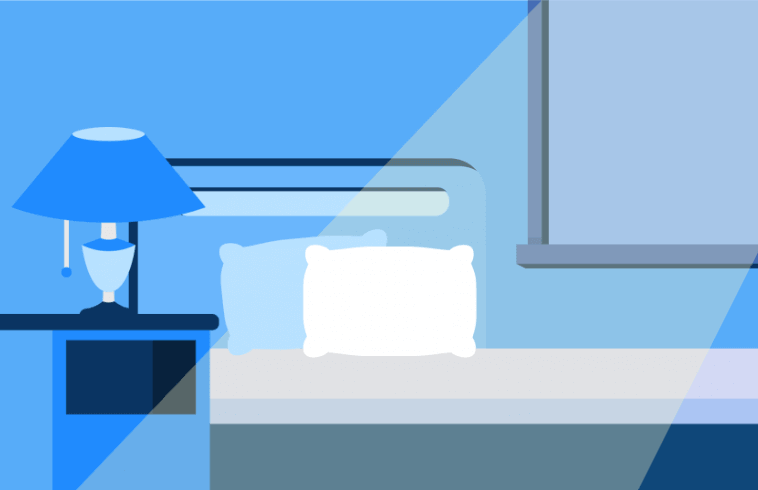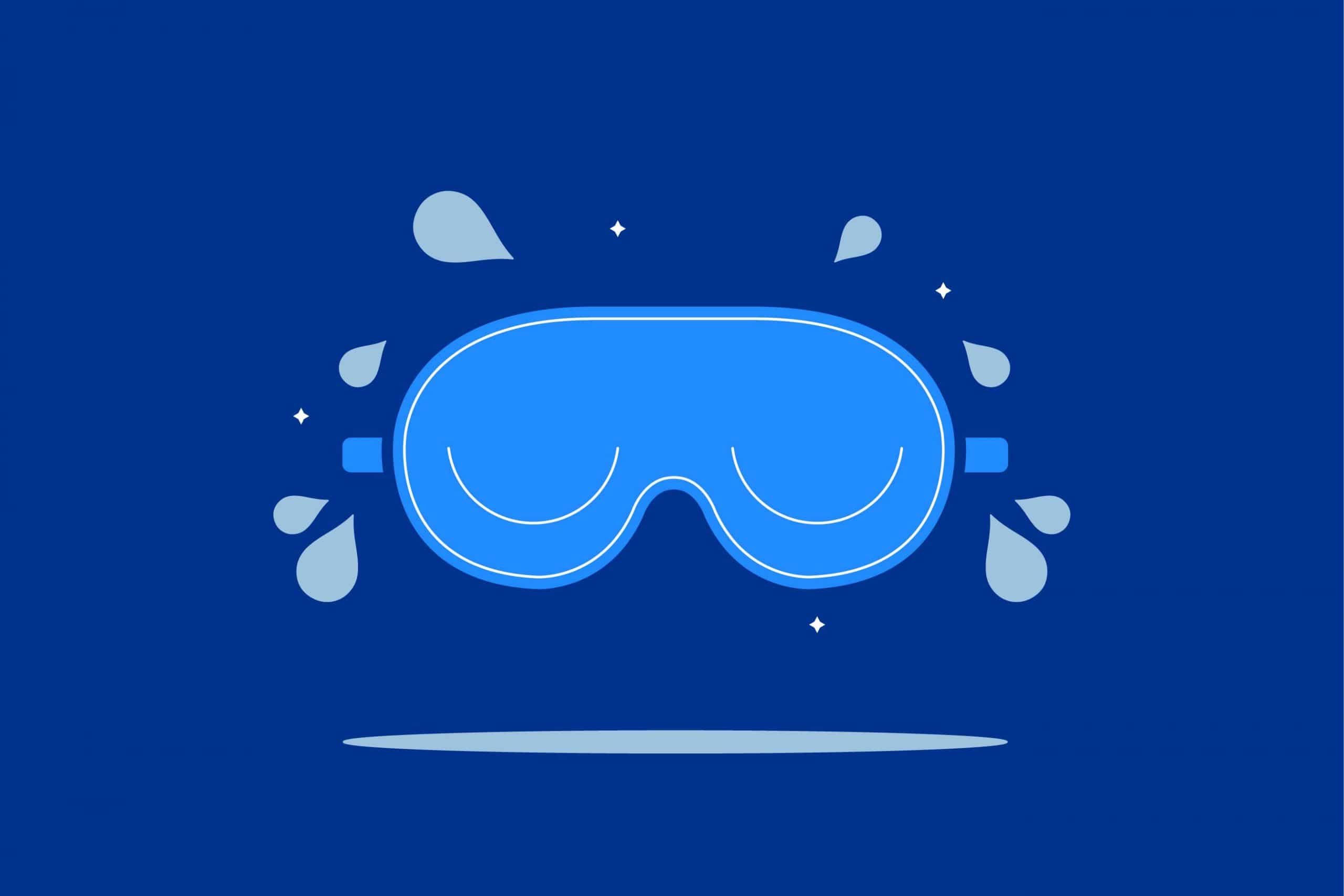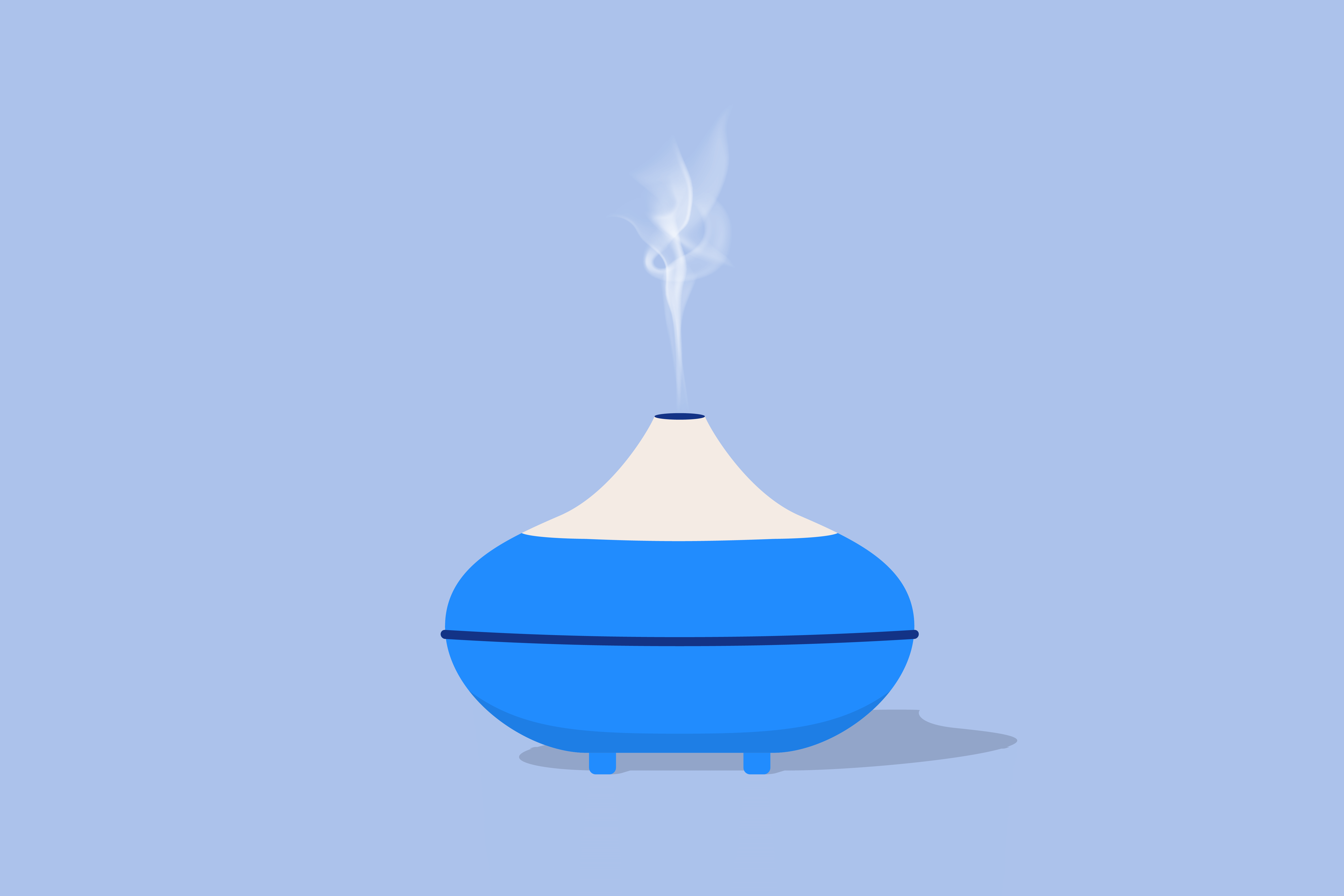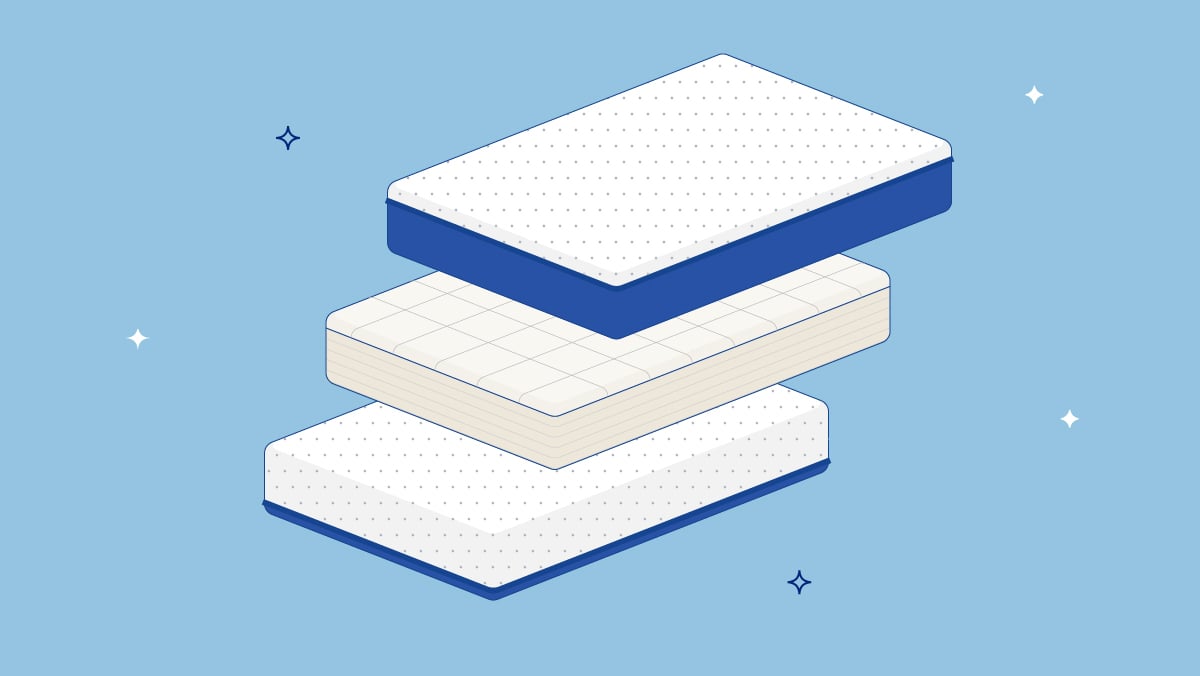Every night, more than half of Americans lose sleep over dollars and cents. There may not be a magic button that can help you achieve a deep and restful slumber, but the market of tools and tech designed to help people sleep better continues to grow. From smart beds and alarm clocks to wearable technology used to track REM cycles, there’s no shortage of options claiming to help you fall asleep faster and wake up more rested.
But does spending more money on sleep comfort mean better sleep? To answer that question, we surveyed 1,003 people about how much they’re willing to spend to get a good night’s rest. Read on as we explore what people are buying and what really works.
Put Your Money Where Your Rest Is
Of the more than 1,000 people surveyed about their sleep habits, half indicated spending money to improve the quality of their rest.
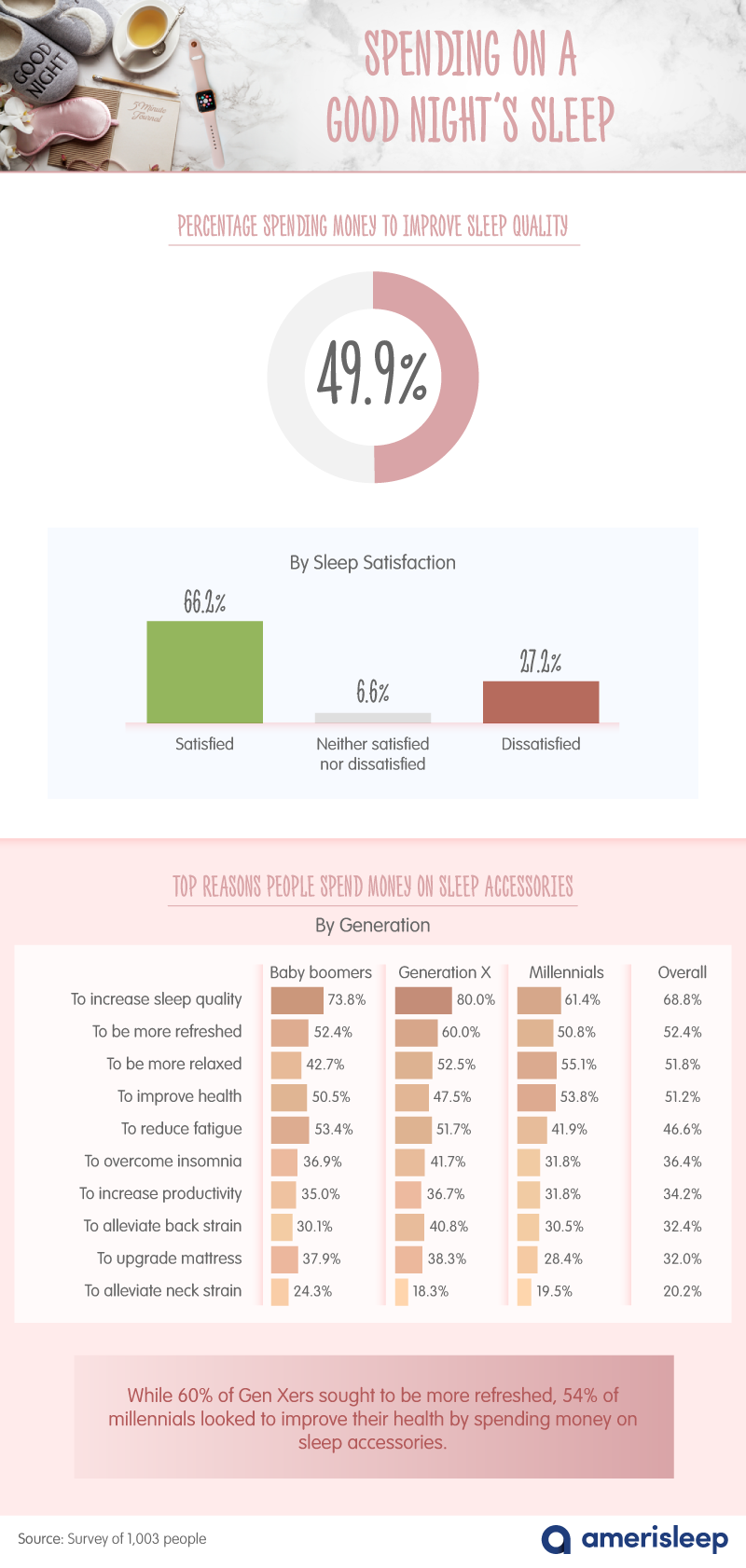
While roughly 2 in 3 people said they are satisfied with their sleep, more than 1 in 4 respondents were dissatisfied with their time spent resting. So, what aspects of slumber have Americans spent money trying to correct? More than 2 in 3 people purchasing sleep accessories wanted to increase the overall quality of their rest, followed by more than half looking to wake up more refreshed, relaxed, with improved health.
More than 1 in 3 Americans also wanted to beat insomnia, including nearly 42 percent of Gen Xers and 37 percent of baby boomers. Millennials, on the other hand, were more likely to indicate having spent money on sleep accessories to improve their health.
Investing in Rest
While sleep technology continues to push the boundaries of what’s possible in terms of monitoring sleep, the most popular sleep purchases were pretty basic.
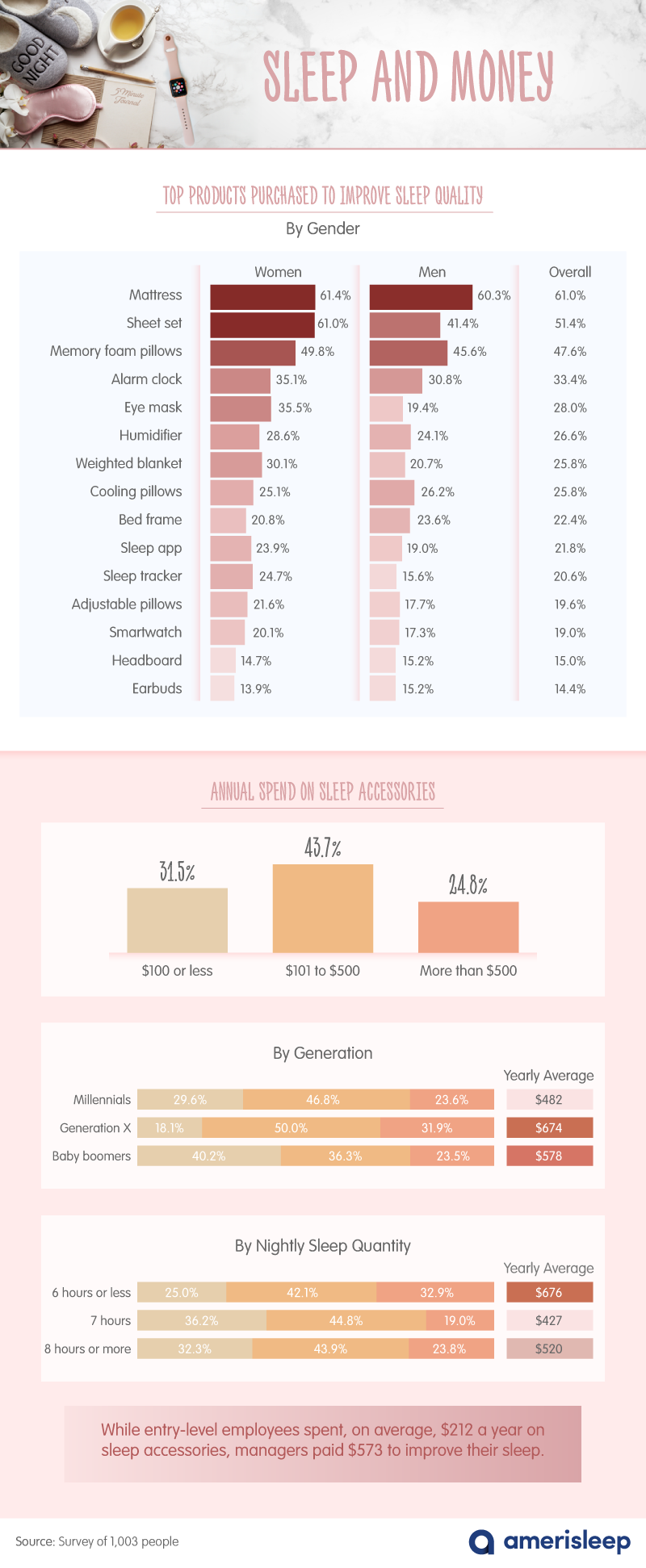
For men and women, a new mattress, sheet set, and memory foam pillows were the top products purchased to help improve sleep quality. However, women were around 20 percentage points more likely than men to buy new sheets.
Most Americans qualified as moderate spenders, averaging between $101 and $500 a year on sleep expenses. While 32 percent were low spenders ($100 or less), nearly 1 in 4 classified as high spenders (more than $500). Gen Xers were the most likely to be considered high spenders (32 percent), averaging $674 a year in the pursuit of better sleep.
Overwhelmingly, people getting the least amount of sleep (six hours or less) paid the most to enhance their rest ($676).
Reaping the Rewards
People who were the most willing to put their money where their zzz’s are had the highest instances of stress (58 percent) and productivity (46 percent), but their commitment to buying better sleep also made them the most satisfied with their quality of rest (71 percent).
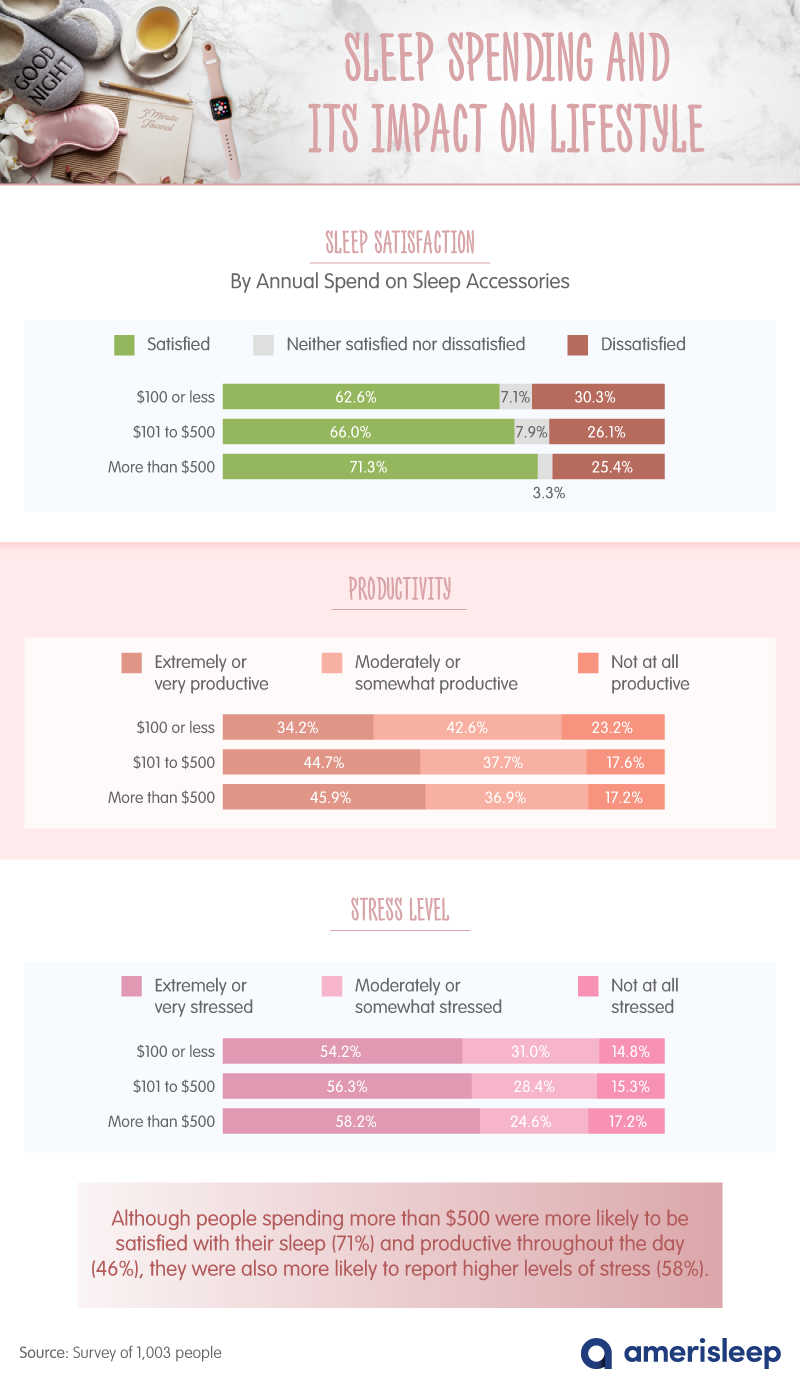
In contrast, people spending less than $100 a year experimenting with better sleep were the least likely to experience extreme stress. However, almost 1 in 4 people in this cohort said they were not at all productive, and around 30 percent were dissatisfied with the quality of their sleep.
High Spenders
Sometimes, buying your way to better sleep can be a matter of trial and error. More than 2 in 5 people who spent money trying to enhance their sleep quality reported purchasing four or more products in the past year. Compared to those satisfied with their sleep and willing to spend nearly $763 a year on products, people dissatisfied with their sleep were only willing to spend an average of $654 annually.
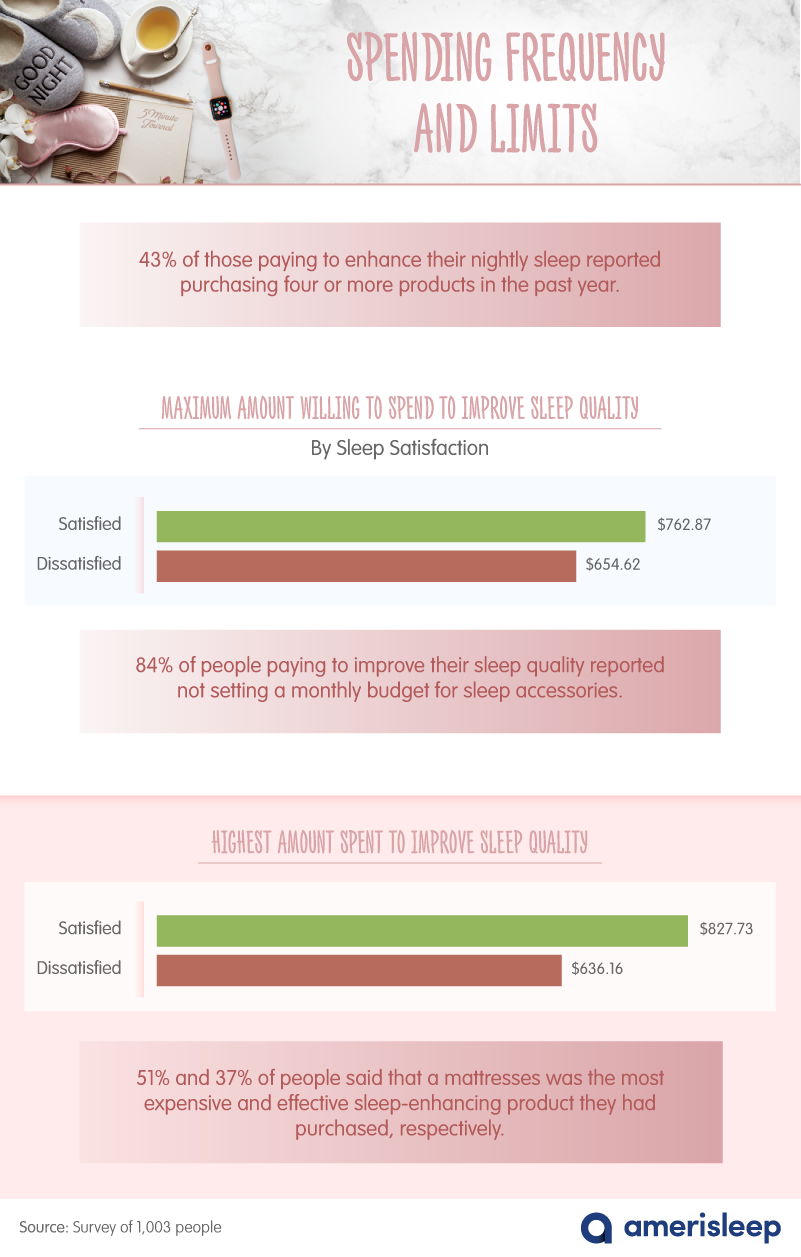
However, more than 4 in 5 Americans willing to spend money to get better sleep reported not setting a monthly budget for this endeavor. Mattresses were seen as the most expensive item purchased to get better rest by 51 percent and the most effective by 37 percent.
On the Hunt for Sleep
Getting enough sleep isn’t just about making sure you wake up feeling rested and ready to take on the day. Studies also show people who get more sleep at night tend to earn higher salaries. We learned our respondents most often purchased mattresses, sheets, and pillows to get better rest. And people willing to spend more reported feeling more satisfied with their shut-eye.
In response to our survey, Amerisleep staff writer April Mayer had this to say: “There is an increasing number of new gadgets and tech toys that are supposed to help you sleep better at night. However, people are more likely to spend their money on sleep basics (including mattresses and pillows), but people spending more reported a higher level of satisfaction with their rest.”
At Amerisleep, we know how important the time you spend in bed is. From health to job productivity, getting the recommended seven to nine hours of sleep every night is crucial to your well-being. With our mattress reviews and sleep resources, we’ll ensure every dollar invested in the pursuit of better sleep is well-spent and perfect for your needs. Learn more about sleep basics at Amerisleep today.
Methodology
For this project, we surveyed 1,003 people. Unemployed or retired respondents were disqualified. To qualify, respondents had to spend money on sleep-related items to enhance sleep or to practice bedtime routines before going to bed to improve sleep quality. Respondents had to answer questions about what they do, how much they spend, and what they are spending to enhance their sleep every night.
Respondents ranged in age from 21 to 65 with an average age of 40 and a standard deviation of 12. Forty-six percent of respondents identified as men, and 53 percent identified as women.
For short, open-ended questions, outliers were removed. To help ensure that all respondents took our survey seriously, they were required to identify and correctly answer an attention-check question.
Limitations
This data relies on self-reporting by the respondents and is only exploratory. Issues with self-reported responses include, but aren’t limited to, exaggeration, selective memory, telescoping, attribution, and bias. All values are based on estimation.
Fair Use Statement
You don’t want to sleep on this one. Share these results for any noncommercial use to help your readers maximize every dollar spent toward better rest; we only ask that you include a link back to this page in your report.
About the author
April Mayer is a sleep expert and writer with a degree in exercise physiology. She has dedicated her career to exploring the relationship between sleep and productivity. Her insightful articles, such as "The Surprising Way Your Mood Might Be Messing With Your Productivity" and "Wake Up to More Productive Mornings," have been featured in reputable publications like Forbes, Greatist, Real Homes, Thrillist, Tom's Guide, and Eat This, Not That. With a passion for helping others lead more productive lives through restful sleep, April offers valuable expertise on foods and vitamins for better sleep. As a trusted member of the Early Bird team since March 2020, she continues to provide informative and well-researched content.
View all posts


